It’s been an eventful week in French politics. Just three months before the first round of the presidential election—scheduled for April 23—the race is now wide open. The election is one of three or four major European polls taking place in 2017, along with the Netherlands in March and Germany in September (and probably Italy as well). At a time of much transatlantic uncertainty, the leader of the EU’s second-largest country will matter a great deal—to France, of course, but also to the rest of Europe and to the United States.
On Sunday, left-wing former education minister Benoît Hamon won the Socialist party’s primary election with almost 59 percent of the vote, defeating ex-prime minister Manuel Valls (François Hollande, the current president, decided not to stand for re-election late last year). On the right, the Republican party’s François Fillon—who had become the unexpected nominee last November—is facing a major political challenge over recent accusations that his wife was paid a generous salary from public funds for a job she may not have carried out. At a rally in Paris Sunday, Fillon denied any wrongdoing and tried to refocus his campaign, telling around 13,000 supporters that he wouldn’t be intimidated by the allegations and vowed to press ahead with an agenda focused on cutting taxes and reducing public workers.
The two primaries are creating a fairly unusual situation in French politics: there is no clear leading candidate for the two-round spring election (the first round’s top two candidates go to a runoff on May 7). As columnist Guillaume Tabard wrote in the daily Le Figaro: “At this stage of any presidential campaign, things are usually clear. This time, nothing is yet certain.” As primary results stand now, the four main candidates are the far right’s Marine Le Pen (who currently leads in first-round voting intentions, with 25 percent support if the election were held now), Fillon (22 percent), centrist Emmanuel Macron (21 percent) and Hamon (15 percent).
Rising star?
The most surprising rise is Macron’s. The 39-year old former economy minister and ex-investment banker formed his movement En Marche! in April 2016; left his cabinet job in August; and seems to have benefited from not taking part in the socialist primary. With Hamon as the official socialist nominee, Macron will appeal to the younger, metropolitan, center-left (and possibly center-right) electorate. A recent poll shows that Macron would win the final round against either Le Pen or Fillon if the presidential election were held today. Several socialist politicians have already thrown their weight behind Macron, including four Socialist members of parliament and the influential Mayor of Lyon Gérard Collomb, who will host a major rally for Macron on February 4.
Although Macron has not yet announced his platform, he’s expected to offer a pro-business yet social-democratic vision quite opposite to Hamon’s (who promises a 32-hour work week and a guaranteed income of €750 ($800) per month). Hamon, a French-styled Bernie Sanders, has also promised to repeal the labor and economic reforms introduced by a then-Minister Macron. The upcoming debate between the two candidates will mirror the complex, multi-faceted term of outgoing president François Hollande, who tried to engage in a reform agenda just months after being elected in 2012 on a left-wing platform. Hamon has been one of his harshest critics within his own camp, and will now face a hard time rallying the Hollande-Valls supporters around him.
Sharp divides
The French presidential election will be characterized by a number of stark political divides. On the left, there are two candidates with opposite views on the economy. While Hamon has not extensively addressed international issues, he has said he will offer a “special humanitarian visa” to refugees; on defense, his plans include a budget increase and a second French aircraft carrier; on the environment, he wants to ban diesel. Macron, for his part, has revealed more about his worldview. On January 24, he wrote, tellingly: “now, we Europeans are on our own. We can close our eyes and pretend we still live in the world of yesterday. We can keep on bickering, mesmerized by the lure of an illusory sovereignty. Or we can decide to act together and shape our own future.” He added: “It is time for Europeans to become sovereign.”
The fact that the field is still so crowded—and with some new faces—is a good thing for democracy overall. However, from a politics perspective, some are concerned about the risk that the more moderate voices could cancel each other out, to the benefit of Marine Le Pen, who feels strengthened by Donald Trump’s U.S. win and by Brexit. Her anti-European, nationalist bent could have devastating consequences for France, the European Union, transatlantic relations, international refugee resettlement efforts, and beyond. At the moment, none of the polls give her a chance of winning the runoff, but a lot will depend on the campaign, whose kickoff is imminent. In the Republican party, many conservatives are rallying around Fillon, but the recent revelations have no doubt hurt him.
While Macron now appears to have a chance at attracting the widest audience, the past twelve months have brought many surprises on both sides of the Atlantic. With fewer than 100 days to go before the vote, the 2017 presidential election has become one of the most breathless races of the Fifth Republic. At stake is not only the future of the French left (now clearly leaning toward its most radical element), but also the future of the eurozone and the entire European Union.
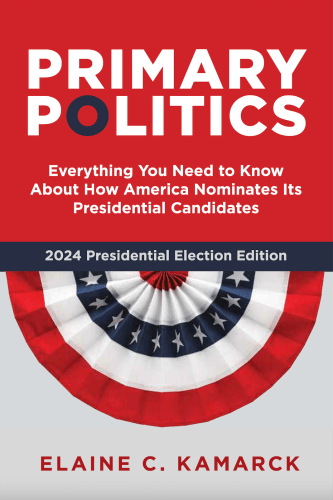
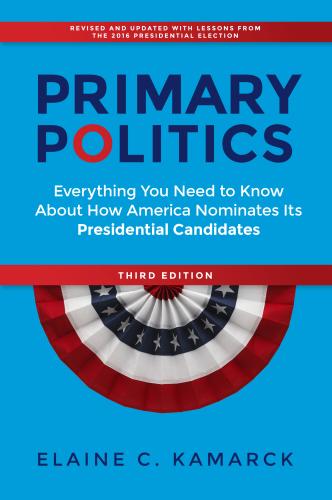
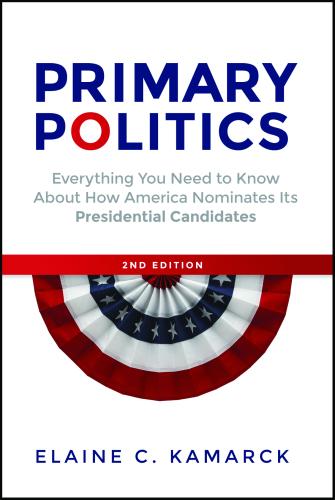
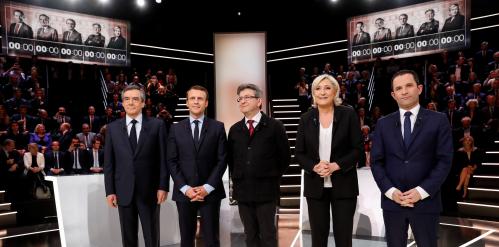
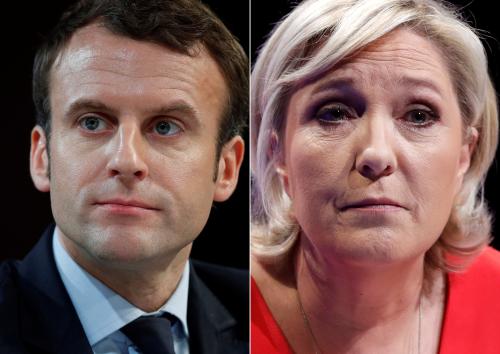
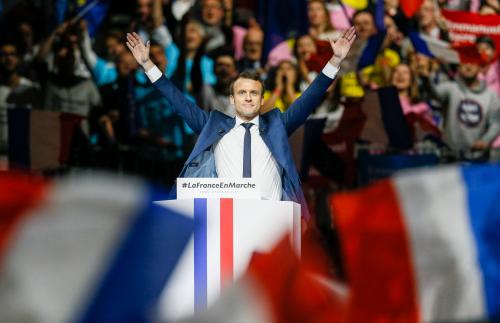




Commentary
Deep divisions obvious as French presidential campaign kicks off
January 30, 2017